Related Research Articles

David Hume was a Scottish Enlightenment philosopher, historian, economist, librarian, and essayist, who is best known today for his highly influential system of philosophical empiricism, skepticism, and naturalism. Beginning with A Treatise of Human Nature (1739–40), Hume strove to create a naturalistic science of man that examined the psychological basis of human nature. Hume argued against the existence of innate ideas, positing that all human knowledge derives solely from experience. This places him with Francis Bacon, Thomas Hobbes, John Locke, and George Berkeley as an empiricist.
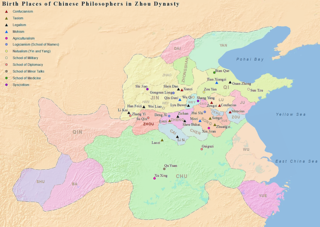
Mohism or Moism was an ancient Chinese philosophy of ethics and logic, rational thought, and science developed by the academic scholars who studied under the ancient Chinese philosopher Mozi, embodied in an eponymous book: the Mozi. Among its major ethical tenets were altruism and a universal, unbiased respect and concern for all people regardless of relations or affiliations. The ideology also stressed the virtues of austerity and utilitarianism.
The Trial of Socrates was held to determine the philosopher's guilt of two charges: asebeia (impiety) against the pantheon of Athens, and corruption of the youth of the city-state; the accusers cited two impious acts by Socrates: "failing to acknowledge the gods that the city acknowledges" and "introducing new deities".

The History of the Decline and Fall of the Roman Empire is a six-volume work by the English historian Edward Gibbon. It traces Western civilization from the height of the Roman Empire to the fall of Byzantium in the fifteenth century. Volume I was published in 1776 and went through six printings. Volumes II and III were published in 1781; volumes IV, V, and VI in 1788–1789.
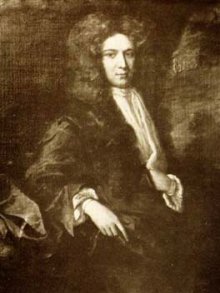
Anthony Collins was an English philosopher and essayist, notable for being one of the early proponents of Deism in Great Britain.

Conyers Middleton was an English clergyman. Though mired in controversy and disputes, he was also considered one of the best stylists in English of his time.

Thomas Hearne or Hearn was an English diarist and prolific antiquary, particularly remembered for his published editions of many medieval English chronicles and other important historical texts.

IgnácGoldziher, often credited as Ignaz Goldziher, was a Hungarian scholar of Islam. Along with the German Theodor Nöldeke and the Dutch Christiaan Snouck Hurgronje, he is considered the founder of modern Islamic studies in Europe. Goldziher is also known for his foundational work of esoteric exegesis of the Hebrew Bible in the seminal work on the topic in "Mythology among the Hebrews," in which he defended Jewish mythology from accusations by the racists of the time that the Jews "stole" the myths of other peoples by explaining the similarities as a consequence of an origination in star lore and astral theology.
The Boyle Lectures are named after Robert Boyle, a prominent natural philosopher of the 17th century and son of Richard Boyle, 1st Earl of Cork. Under the terms of his Will, Robert Boyle endowed a series of lectures or sermons which were to consider the relationship between Christianity and the new natural philosophy then emerging in European society.
The Apology of Socrates, written by Plato, is a Socratic dialogue of the speech of legal self-defence which Socrates spoke at his trial for impiety and corruption in 399 BC.
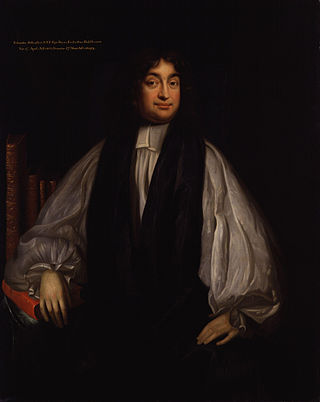
Edward Stillingfleet was a British Christian theologian and scholar. Considered an outstanding preacher as well as a strong polemical writer defending Anglicanism, Stillingfleet was known as "the beauty of holiness" for his good looks in the pulpit, and was called by John Hough "the ablest man of his time".
Samuel Parker was an English churchman, of strong Erastian views and a fierce opponent of Dissenters. His political position is often compared with that of Thomas Hobbes, but there are also clear differences; he was also called in his time a Latitudinarian, but this is not something on which modern scholars are agreed. During the reign of King James II he served as Bishop of Oxford, and was considered by James to be a moderate in his attitude to Catholics.
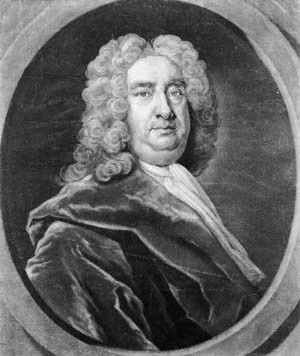
George Cheyne, M.D. R.C. E.d. R.S.S. (1672–1743), was a pioneering physician, early proto-psychiatrist, philosopher and mathematician.
William Henry Denham Rouse was a pioneering British teacher who advocated the use of the "direct method" of teaching Latin and Greek.
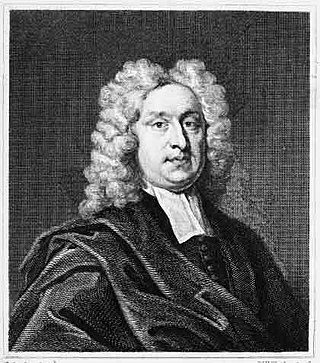
Edmund Calamy was an English Nonconformist churchman and historian.

Christians were persecuted, sporadically and usually locally, throughout the Roman Empire, beginning in the 1st century AD and ending in the 4th century. Originally a polytheistic empire in the traditions of Roman paganism and the Hellenistic religion, as Christianity spread through the empire, it came into ideological conflict with the imperial cult of ancient Rome. Pagan practices such as making sacrifices to the deified emperors or other gods were abhorrent to Christians as their beliefs prohibited idolatry. The state and other members of civic society punished Christians for treason, various rumored crimes, illegal assembly, and for introducing an alien cult that led to Roman apostasy. The first, localized Neronian persecution occurred under Emperor Nero in Rome. A more general persecution occurred during the reign of Marcus Aurelius. After a lull, persecution resumed under Emperors Decius and Trebonianus Gallus. The Decian persecution was particularly extensive. The persecution of Emperor Valerian ceased with his notable capture by the Sasanian Empire's Shapur I at the Battle of Edessa during the Roman–Persian Wars. His successor, Gallienus, halted the persecutions.

John May (Meye) was an English academic and churchman, who became Bishop of Carlisle. He also served the House of De Vere as cleric in Buckinghamshire.

Socrates was a Greek philosopher from Athens who is credited as the founder of Western philosophy and among the first moral philosophers of the ethical tradition of thought. An enigmatic figure, Socrates authored no texts and is known mainly through the posthumous accounts of classical writers, particularly his students Plato and Xenophon. These accounts are written as dialogues, in which Socrates and his interlocutors examine a subject in the style of question and answer; they gave rise to the Socratic dialogue literary genre. Contradictory accounts of Socrates make a reconstruction of his philosophy nearly impossible, a situation known as the Socratic problem. Socrates was a polarizing figure in Athenian society. In 399 BC, he was accused of impiety and corrupting the youth. After a trial that lasted a day, he was sentenced to death. He spent his last day in prison, refusing offers to help him escape.
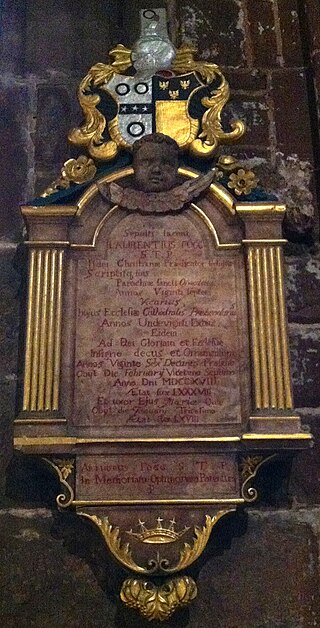
Laurence Fogg or Fogge (1623–1718) was dean of Chester.
Peter Timothy (1724–1782), originally named Peter Timothee, was an 18th-century Dutch-American printer and politician. He immigrated to the American colonies with his parents, French Huguenots, Lewis and Elizabeth Timothy. Lewis worked for Benjamin Franklin and learned the trade in Philadelphia before moving to Charleston, South Carolina (called Charles Town before the American Revolutionary War. His parents ran the South Carolina Gazette, which was turned over to Timothy after his father's death, his mother's period of operating the printing business, and after he became of age. In addition to running the newspaper, Timothy, ran a printing business, was postmaster, and politician. He was particularly active in the period leading up to and during the war. A notable event was his publication of the Declaration of Independence for public viewing, which included his name as printer. Afraid that his printing press would be damaged or confiscated, there were periods of time, such as during the Siege of Charleston when he had suspended publishing. He was taken prisoner as a traitor and held for ten months at the alligator-protected prison at St. Augustine, Florida. He died during an ocean voyage, after which is wife Ann Timothy took over the printing business.
References
- ↑ "Aspinwall, Edward (ASPL717E)". A Cambridge Alumni Database. University of Cambridge.
. Dictionary of National Biography . London: Smith, Elder & Co. 1885–1900.